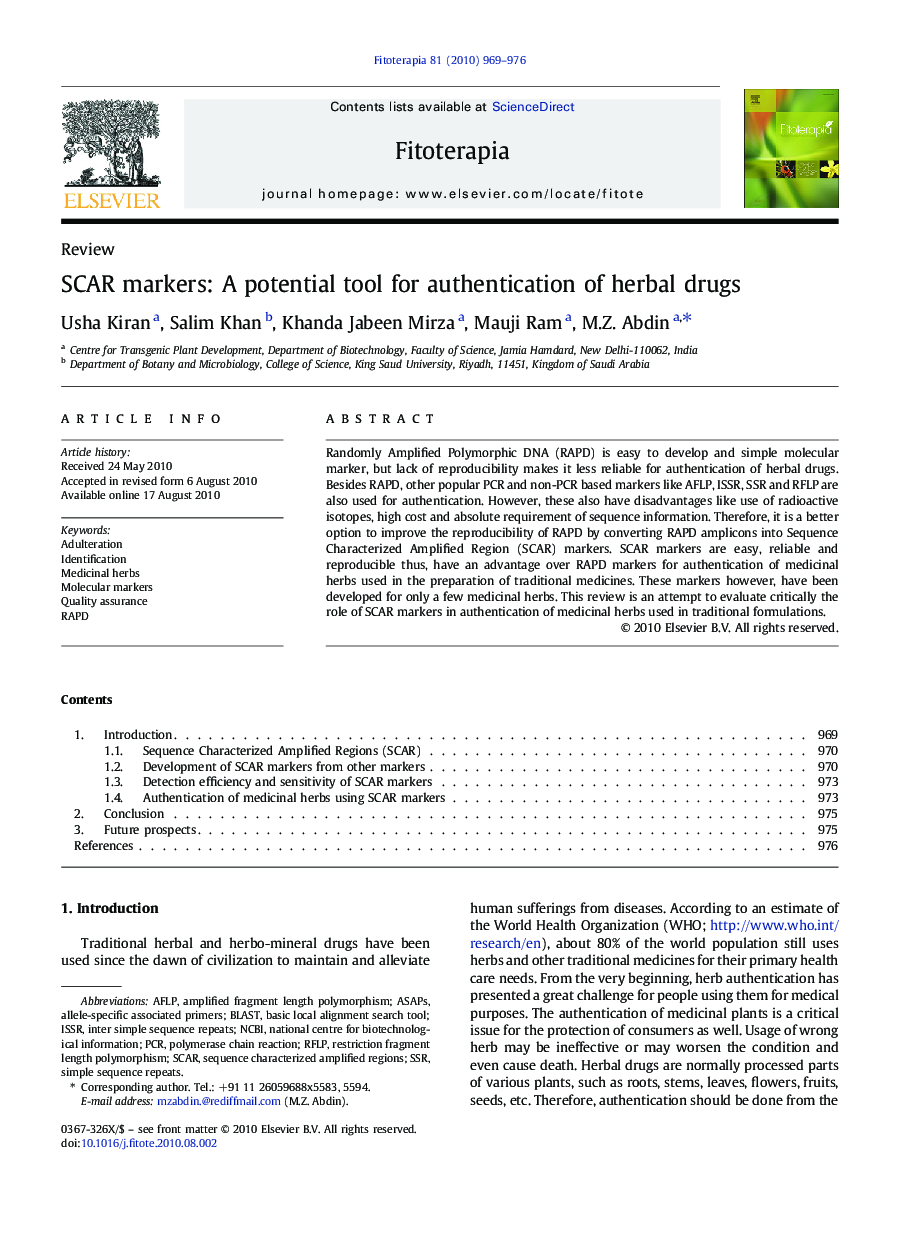| Article ID | Journal | Published Year | Pages | File Type |
|---|---|---|---|---|
| 2539042 | Fitoterapia | 2010 | 8 Pages |
Randomly Amplified Polymorphic DNA (RAPD) is easy to develop and simple molecular marker, but lack of reproducibility makes it less reliable for authentication of herbal drugs. Besides RAPD, other popular PCR and non-PCR based markers like AFLP, ISSR, SSR and RFLP are also used for authentication. However, these also have disadvantages like use of radioactive isotopes, high cost and absolute requirement of sequence information. Therefore, it is a better option to improve the reproducibility of RAPD by converting RAPD amplicons into Sequence Characterized Amplified Region (SCAR) markers. SCAR markers are easy, reliable and reproducible thus, have an advantage over RAPD markers for authentication of medicinal herbs used in the preparation of traditional medicines. These markers however, have been developed for only a few medicinal herbs. This review is an attempt to evaluate critically the role of SCAR markers in authentication of medicinal herbs used in traditional formulations.
Graphical AbstractCorrect identification and quality assurance is indispensable to ensure reproducible medicinal quality of herbal drugs. Authentication is especially useful in case of those medicinal herbs that are frequently substituted or adulterated with other species or varieties, morphologically and phytochemically indistinguishable. Morphological as well as biochemical markers used in authentication of herbal drugs have many limitations due to the impact of environmental conditions. Molecular markers therefore, are an important tool in quality assurance and preservation of germplasms of medicinal plant species in the plant kingdom.Figure optionsDownload full-size imageDownload as PowerPoint slide
